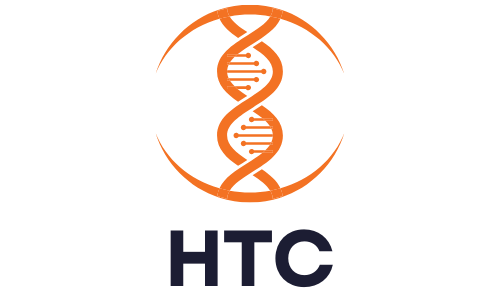The Role of HealthTech in Enhancing Patient Engagement and Compliance
Patient engagement and compliance are critical components of effective healthcare delivery. Engaged patients are more likely to adhere to treatment plans, make informed health decisions, and maintain healthier lifestyles. Compliance with medical advice and prescribed treatments significantly influences patient outcomes, reducing the risk of complications and improving overall health.
HealthTech innovations are playing a transformative role in enhancing patient engagement and compliance. Technologies such as mobile health apps, telemedicine, wearable devices, and AI-driven solutions are creating new opportunities for patients to interact with healthcare providers and manage their health proactively. This blog aims to explore how these HealthTech advancements are improving patient engagement and compliance and to analyze the investment potential in patient-centric health technologies.
Understanding Patient Engagement and Compliance
Patient engagement refers to the involvement of patients in their own healthcare, encompassing actions like actively participating in medical decisions, adhering to prescribed treatments, and maintaining communication with healthcare providers. Compliance, on the other hand, is the extent to which patients follow medical advice and adhere to prescribed treatments.
Engagement and compliance are crucial for achieving optimal health outcomes. Patients who are engaged are more likely to understand their health conditions, follow treatment plans, and take preventive measures, leading to better management of chronic diseases and fewer hospitalizations. However, achieving high levels of patient engagement and compliance remains challenging due to factors such as lack of education, motivation, and access to resources.
HealthTech Innovations in Patient Engagement
HealthTech solutions are designed to address these challenges by providing patients with tools that facilitate better communication, education, and self-management.
Mobile Health Apps
Mobile health apps are revolutionizing patient engagement by providing easy access to health information, reminders for medication, and platforms for tracking health metrics. These apps enable patients to set health goals, monitor progress, and receive personalized recommendations. Features such as push notifications, educational content, and real-time communication with healthcare providers enhance patient involvement and accountability.
For example, apps like MyFitnessPal and HealthifyMe provide comprehensive platforms for diet and exercise tracking, helping users set goals, monitor their progress, and stay motivated. Similarly, medication reminder apps like Medisafe send alerts to patients to take their medications on time, reducing the risk of missed doses and enhancing adherence.
Telemedicine
Telemedicine has become a vital tool for improving patient-provider communication and engagement. It allows patients to consult with healthcare professionals remotely, reducing the need for travel and making healthcare more accessible. Telemedicine platforms facilitate continuous monitoring, follow-up consultations, and timely interventions, thereby enhancing patient engagement and compliance.
During the COVID-19 pandemic, telemedicine platforms such as Teladoc and Amwell experienced a significant surge in usage. These platforms enabled patients to receive medical consultations from the safety of their homes, ensuring continuity of care and minimizing exposure to the virus. By providing a convenient and efficient way to access healthcare, telemedicine has become an essential component of patient engagement strategies.
Wearable Devices
Wearable devices, such as fitness trackers and smartwatches, provide real-time monitoring of vital signs and physical activity. These devices encourage patients to stay active and make healthier choices by tracking their progress and providing instant feedback. Wearables also enable healthcare providers to monitor patients remotely, ensuring timely adjustments to treatment plans and enhancing compliance.
Devices like Fitbit and Apple Watch offer features such as heart rate monitoring, sleep tracking, and activity logging, empowering users to take control of their health. By integrating with mobile health apps, these wearables provide a holistic view of the user's health and facilitate personalized health recommendations.
Patient Portals
Patient portals are secure online platforms that give patients access to their medical records, test results, and personalized health information. These portals enable patients to communicate with their healthcare providers, schedule appointments, and refill prescriptions. By providing easy access to health information and facilitating communication, patient portals enhance engagement and compliance.
Systems like MyChart and Patient Gateway provide patients with a comprehensive view of their health history and ongoing treatments. Patients can review their lab results, request prescription refills, and message their doctors directly through these portals, fostering a more informed and engaged patient population.
HealthTech Innovations in Patient Compliance
Improving patient compliance with treatment plans is essential for achieving desired health outcomes. HealthTech solutions offer innovative ways to support patients in adhering to their prescribed regimens.
Medication Adherence Tools
Medication adherence tools, such as smart pill bottles and reminder apps, help patients remember to take their medications on time. These tools can send alerts to patients and caregivers, track medication intake, and provide refill reminders. Automated alerts and tracking systems ensure that patients adhere to their treatment plans, reducing the risk of complications and improving health outcomes.
For instance, AdhereTech's smart pill bottles send real-time reminders and notifications to patients' smartphones if they miss a dose. These bottles also collect data on medication adherence, which can be shared with healthcare providers to monitor patient compliance and intervene if necessary.
Remote Patient Monitoring
Remote patient monitoring involves the use of digital technologies to track patients' health conditions outside of traditional clinical settings. Devices such as blood pressure monitors, glucose meters, and pulse oximeters transmit data to healthcare providers, allowing for continuous monitoring and timely interventions. Remote monitoring ensures that patients adhere to their treatment plans and enables healthcare providers to make data-driven decisions.
Companies like Livongo offer remote monitoring solutions for chronic conditions such as diabetes and hypertension. These platforms provide patients with connected devices that automatically upload health data to a secure cloud, where it is analyzed and used to provide personalized feedback and support.
AI and Data Analytics
AI and data analytics play a crucial role in developing personalized treatment plans and predictive compliance models. By analyzing patient data, AI algorithms can identify patterns, predict potential adherence issues, and provide tailored recommendations. Predictive analytics help healthcare providers intervene early, improving patient compliance and outcomes.
For example, Propeller Health uses AI to analyze data from connected inhalers and predict asthma attacks before they occur. By providing patients with personalized insights and reminders, the platform helps improve medication adherence and prevent exacerbations.
Behavioral Health Tools
Behavioral health tools, such as gamification and motivational incentives, are designed to encourage patients to adhere to their treatment plans. These tools use game-like elements, rewards, and social support to motivate patients to engage in healthy behaviors and follow medical advice. By making health management more engaging and rewarding, these tools enhance compliance and overall well-being.
Platforms like Mango Health use gamification to encourage medication adherence by rewarding users with points and badges for taking their medications on time. These rewards can be redeemed for real-world incentives, such as gift cards or charitable donations, providing additional motivation for patients to stay compliant.
Notable Labs: Pioneering HealthTech Innovations for Enhanced Patient Engagement and Compliance
Notable Labs is at the forefront of integrating cutting-edge health technologies to significantly improve patient engagement and compliance. By leveraging advanced genetic and molecular analyses, Notable Labs collaborates with healthcare providers to create personalized treatment plans that are both effective and patient-centric. Their commitment to evidence-based practices and robust clinical data supports the development of innovative health solutions that make personalized healthcare accessible and affordable. Notable Labs exemplifies the transformative potential of HealthTech, setting new standards for patient care and ensuring that every patient receives the most tailored and effective treatments possible.
Case Studies of HealthTech Solutions
Case Study 1: Mobile Health App Improving Diabetes Management
A mobile health app designed for diabetes management provides patients with tools to track their blood glucose levels, monitor their diet, and set reminders for medication. The app also offers educational content and real-time communication with healthcare providers. Patients using the app reported improved glycemic control, increased adherence to treatment plans, and higher levels of engagement in their healthcare.
Case Study 2: Telemedicine Platform Enhancing Chronic Disease Care
A telemedicine platform for chronic disease management enables patients to have regular virtual consultations with their healthcare providers. The platform includes features for remote monitoring, medication reminders, and personalized care plans. Patients with chronic conditions, such as hypertension and heart disease, experienced better management of their conditions, reduced hospitalizations, and higher satisfaction with their care.
Case Study 3: Wearable Device Boosting Physical Activity and Adherence to Exercise Plans
A wearable fitness tracker equipped with sensors for monitoring physical activity, heart rate, and sleep patterns helped patients adhere to their exercise plans. The device provided real-time feedback, goal-setting features, and social support through an online community. Users reported increased physical activity, improved fitness levels, and higher adherence to prescribed exercise regimens.
Benefits of Enhanced Patient Engagement and Compliance
Improved Health Outcomes and Quality of Life for Patients
HealthTech solutions that enhance patient engagement and compliance lead to better health outcomes. Patients who actively participate in their healthcare are more likely to follow treatment plans, make informed decisions, and adopt healthier lifestyles. This results in better management of chronic diseases, reduced complications, and improved overall health.
Reduced Healthcare Costs through Prevention and Early Intervention
Engaged and compliant patients are less likely to experience severe health issues that require costly treatments and hospitalizations. By preventing complications and enabling early intervention, HealthTech solutions contribute to significant cost savings for healthcare systems and patients.
Enhanced Patient Satisfaction and Trust in the Healthcare System
When patients are engaged and receive personalized care, they are more satisfied with their healthcare experience. HealthTech solutions that facilitate communication, provide easy access to health information, and support self-management foster trust and confidence in the healthcare system.
Better Data Collection and Insights for Healthcare Providers
HealthTech solutions generate valuable data on patient behaviors, treatment adherence, and health outcomes. This data helps healthcare providers gain insights into patient needs, monitor treatment effectiveness, and make data-driven decisions. Improved data collection enhances the overall quality of care and supports continuous improvement.
Challenges and Risks
Potential Challenges and Risks in Implementing HealthTech Solutions
Despite the numerous benefits, implementing HealthTech solutions for patient engagement and compliance comes with challenges. Technical issues, user adoption, and integration with existing healthcare systems can pose significant hurdles.
Regulatory and Compliance Hurdles
HealthTech solutions must comply with stringent regulatory requirements to ensure patient safety and data privacy. Navigating these regulations can be complex and time-consuming, potentially delaying the implementation of innovative solutions.
Data Privacy and Security Concerns
With the increasing use of digital health technologies, ensuring the privacy and security of patient data is paramount. HealthTech solutions must implement robust security measures to protect sensitive information from breaches and cyber threats.
Strategies for Overcoming These Challenges
To overcome these challenges, HealthTech companies should prioritize user-friendly designs, invest in robust cybersecurity measures, and collaborate with regulatory bodies to ensure compliance. Engaging patients in the development process and providing adequate training and support can also enhance user adoption.
Investment Opportunities in Patient-Centric Health Technologies
Identifying Promising HealthTech Companies and Platforms
Investors should focus on HealthTech companies and platforms that demonstrate a strong commitment to patient engagement and compliance. Companies with a track record of innovation, user-centric designs, and proven outcomes are likely to offer the best investment opportunities.
Factors to Consider When Investing in This Field
When evaluating investment opportunities, consider factors such as the scalability of the solution, regulatory compliance, market demand, and the company's financial health. Additionally, assessing the potential for partnerships with healthcare providers and payers can provide insights into the long-term viability of the investment.
Long-term vs. Short-term Investment Strategies
Both long-term and short-term investment strategies can be effective in the HealthTech sector. Long-term investments allow for the growth and maturation of innovative solutions, while short-term investments can capitalize on emerging trends and early successes.
Examples of Recent Investments and Their Outcomes
Recent investments in HealthTech companies focused on patient engagement and compliance have shown promising outcomes. For example, investments in telemedicine platforms and remote monitoring solutions have yielded significant returns as these technologies became essential during the COVID-19 pandemic.
Future Trends and Innovations
Emerging Trends and Future Directions in HealthTech for Patient Engagement and Compliance
Emerging trends in HealthTech for patient engagement and compliance include the integration of AI and machine learning, the use of virtual and augmented reality for patient education, and the expansion of telehealth services. These innovations promise to further enhance patient care and engagement.
The Impact of Technological Advancements on Patient-Centric Healthcare
Technological advancements such as 5G connectivity, blockchain for secure data management, and advanced wearables will continue to drive innovation in patient-centric healthcare. These technologies will enable more seamless and efficient care delivery, improving patient outcomes.
Predictions for the Next Decade in HealthTech for Patient Engagement and Compliance
Over the next decade, HealthTech solutions will become more personalized, predictive, and preventive. AI-driven analytics will enable proactive interventions, and patient-centric platforms will empower individuals to take control of their health. The integration of HealthTech into everyday life will become more seamless, leading to a more engaged and healthier population.
Conclusion
Recap of Key Points Discussed
HealthTech innovations are transforming patient engagement and compliance, leading to improved health outcomes, reduced healthcare costs, and enhanced patient satisfaction. Technologies such as mobile health apps, telemedicine, wearable devices, and AI-driven solutions are providing patients with tools to manage their health proactively.
Final Thoughts on the Potential of HealthTech in Enhancing Patient Engagement and Compliance
The potential of HealthTech in enhancing patient engagement and compliance is immense. By empowering patients to take an active role in their healthcare, these technologies can significantly improve health outcomes and quality of life. Continued investment in innovative HealthTech solutions is essential to realize this potential fully.
Encouragement to Support and Invest in Patient-Centric HealthTech Solutions
Investing in HealthTech solutions focused on patient engagement and compliance is not only financially rewarding but also socially impactful. By supporting these innovations, investors can contribute to a healthier, more efficient healthcare system that benefits patients and providers alike.










